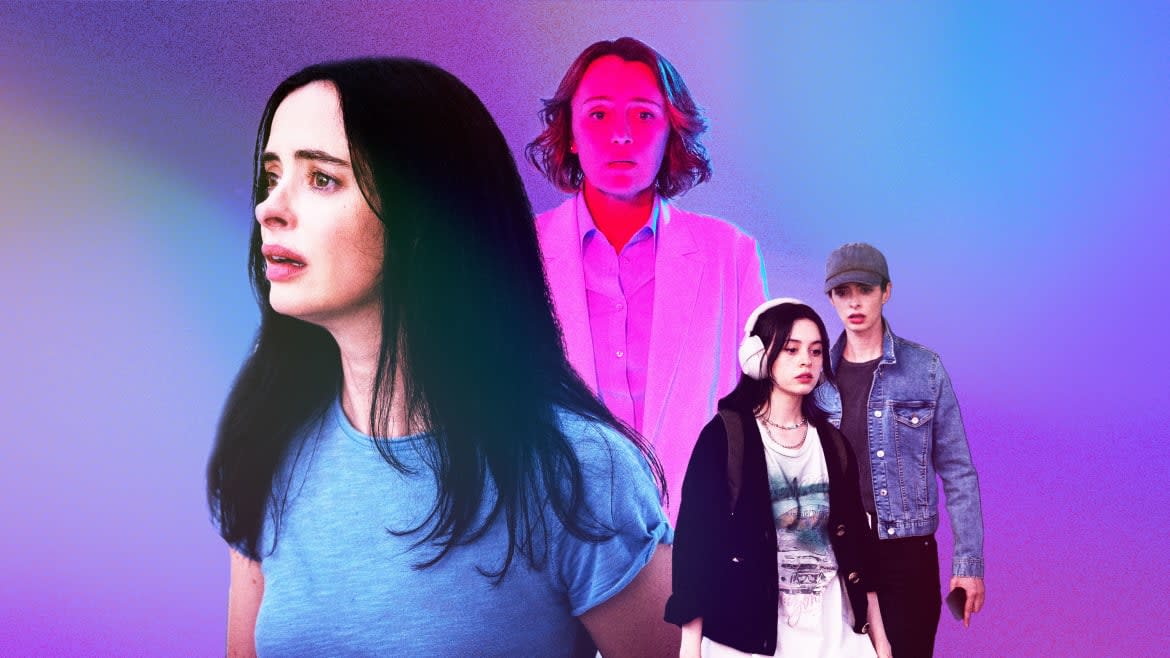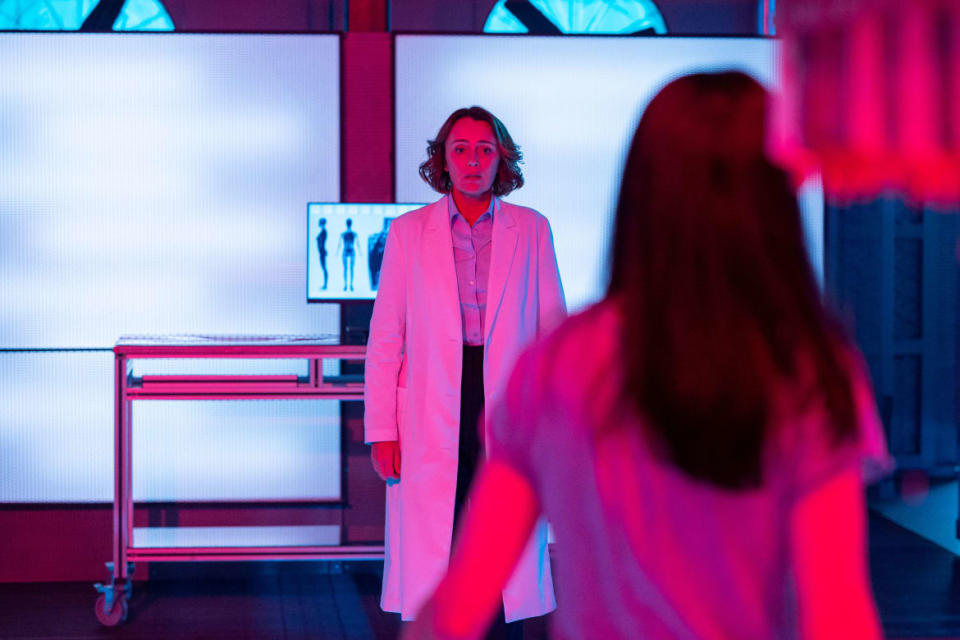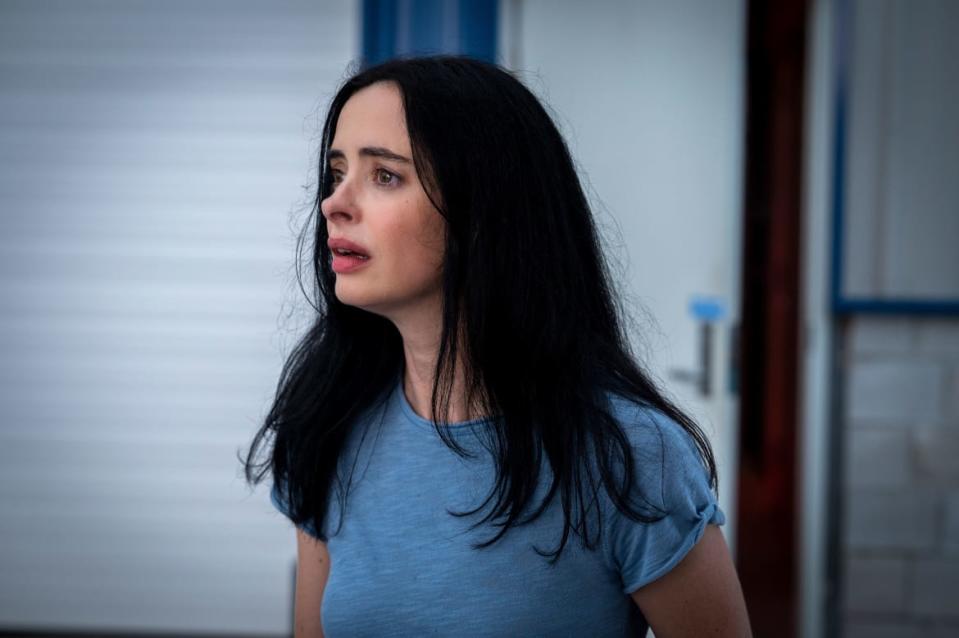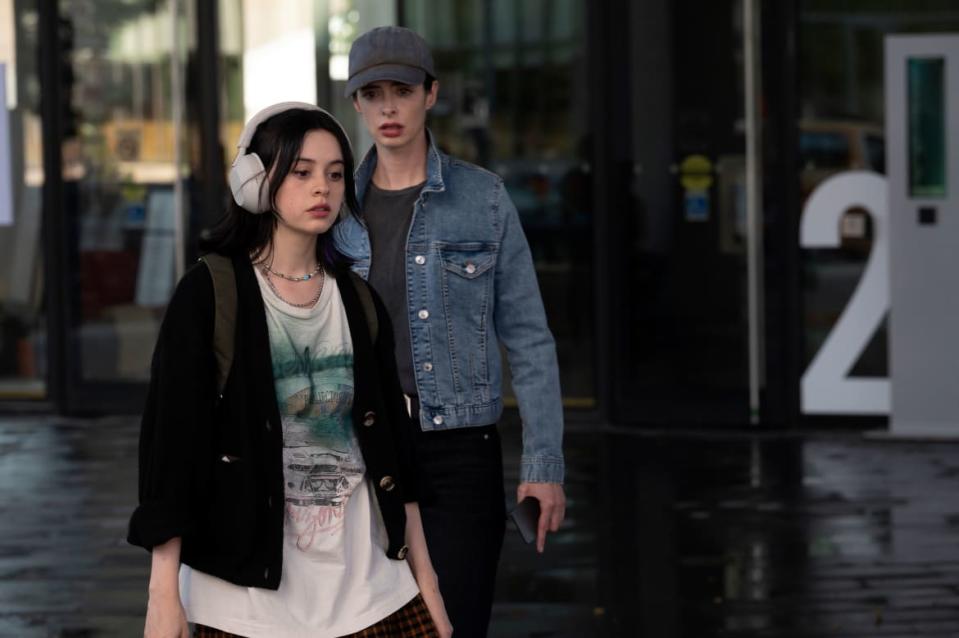‘Orphan Black: Echoes’ Is the Rare Brilliant Spin-Off Series

It makes sense for the clone show to get its own clone. Almost seven years after the conclusion of Orphan Black, the Canadian drama that launched Tatiana Maslany to international stardom for her portrayal of a small army of human copies, we’re diving back into the clone-iverse with Orphan Black: Echoes. The show, premiering June 23 on AMC, presents an ominous technological future dominated by 3-D printing technology and monomaniacal scientists bent on perfecting humanity at any cost, and, like the clones in Orphan Black, the new series offers a spin on familiar territory. Echoes pointedly takes a different route through the metaphysics and ethical conundrums of scientific progress, asking us to ascribe human motivations to inhuman acts.
It’s Boston in 2052: The city skyline now has spiraling high-rises reinforced with skeletal honeycomb facades, even trucks have that electric vehicle purr, and rolling hills are dotted with windmills to indicate that we’re in The Future. A scientist played with quiet melancholy by Keeley Hawes works at the Additive Foundation, experimenting on a new technology with the capability to print human organs from scratch.

Keeley Hawes as Dr. Manning in Episode 1 of Orphan Black: Echoes.
But that’s not the only thing she’s printing. In the opening scene, the scientist comes into contact with an amnesiac woman (Krysten Ritter, ever the badass, abrasive heroine in a dark jacket and skinny jeans) who has no memory of her name, or even a conception of ever having a past—and, given that this show is the sequel series to a show about clones, you can probably guess why. The only flash of recollection Ritter’s character, who later takes on the name Lucy, feels happens the moment she runs into a young teen girl named Jules (Amanda Fix) who looks strikingly familiar. Again, perhaps you can guess why.
Aside from an aged-up major character, some thematic ties to the original, and a couple of secondary characters (no spoilers!) making their grand returns sporting old-age makeup, Echoes has very little to do with the events of Orphan Black. It finds new avenues into the same material, but might as well be a totally separate entity, given how its characters tend to repeat the same patterns and make the same mistakes. Why, for example, would said aged-up character involve themselves in cloning experiments when they had seen firsthand what that had done to all the clones they knew in the past? Surely one of the many scientist characters on this show would have something pithy to say about cycles of destruction.

Krysten Ritter as Lucy in Episode 1 of Orphan Black: Echoes.
It does have a similar churning feeling that Orphan Black began to express in its later seasons: Characters are constantly finding each other and then running away from each other, getting separated, getting abducted, finding each other again, and then going back into hiding. During the churnier middle episodes, it makes you want to lock everyone in a room and force them to talk it all out, if only to get things moving along. The show is at its best when all of its characters are pinging off each other, Ritter’s jabs moving against Fix’s sullen walls and Hawes’ desperate pleas for everyone to just have a little sense while they navigate the twisty, emotional core of the show’s action.
It also sports the requisite slightly-evil-billionaire character interested in using new technologies for his own ends, as well as the traditional spooky string-pulling organization that ultimately control the show’s characters. There’s an uncanny, artificial feeling to a lot of the sets that may not be completely intentional, but works well with the show’s ominous tone—especially once people’s living rooms and trailer homes are literally picked up and reinstalled inside of echoing warehouses like that image of the Unabomber’s cabin locked away inside a white-walled FBI storage facility. At any moment, a character is at risk of learning they’ve not only been living a lie, but that their life as they thought they knew it never existed at all.

Amanda Fix as Jules, Krysten Ritter as Lucy in Episode 1 of Orphan Black: Echoes.
If the gimmick of the original show was watching one actress don a bunch of wigs and multiple wardrobes to play half the cast, the draw of Echoes is watching multiple versions of the same character played by different actresses of different ages. It’s certainly simpler from a production standpoint, and it makes sense for Echoes not to just do the same thing again. Where Orphan Black was focused on housing disparate personas inside the same body, its sequel is more concerned with how those changes take place, and how people, like our memories of them, warp and evolve over time into new forms. Can you make a carbon copy of a person, down to their thought patterns, their memories? If you managed to do it, would they really be the same? If not, then what?
Get the Daily Beast's biggest scoops and scandals delivered right to your inbox. Sign up now.
Stay informed and gain unlimited access to the Daily Beast's unmatched reporting. Subscribe now.


